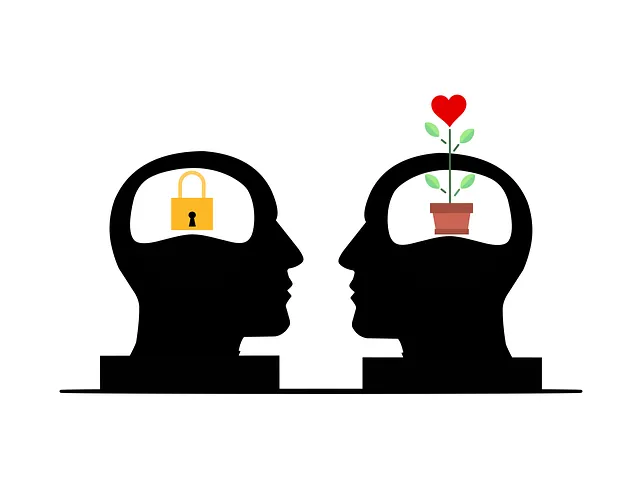Kaiser Permanente's Mental Health Access Center in Denver provides Social Skills Training (SST), empowering healthcare providers with enhanced communication and empathy. This training focuses on mood regulation and well-being, addressing diverse patient needs. Through evidence-based practices like Mind Over Matter and Compassion Cultivation, the center offers personalized support, coping skills, and stress management techniques. SST uses role-playing and CBT to improve social interactions, build confidence, and refine communication for individuals with mental health conditions, leading to better social integration and access to care.
Social skills training is a powerful tool for individuals navigating mental health conditions. This comprehensive guide explores how specialized programs, such as those offered by the Kaiser Permanente Mental Health Access Center in Denver, address social interaction challenges often faced by people with mental health issues. We delve into effective strategies, benefits, and real-world applications, highlighting the transformative potential of this approach. Understanding these techniques can empower both individuals and healthcare providers to foster meaningful connections.
- Understanding Social Skills Training for Mental Health Conditions
- The Role of Kaiser Permanente Mental Health Access Center Denver
- Identifying Challenges in Social Interaction for Those with Mental Health Conditions
- Strategies and Techniques Used in Social Skills Training
- Benefits, Outcomes, and Real-World Applications of Social Skills Training
Understanding Social Skills Training for Mental Health Conditions

Social Skills Training for Mental Health Conditions plays a pivotal role in enhancing support and care at Kaiser Permanente mental health access centers, such as those located in Denver. This type of training equips healthcare providers with essential tools to effectively communicate, empathize, and understand the unique needs of individuals facing various mental health challenges. By fostering better social connections, these skills contribute significantly to improved mood management and overall well-being.
At Kaiser Permanente, the integration of social skills training is particularly crucial given the diverse patient population and their varying cultural backgrounds. Healthcare provider cultural competency training ensures that professionals can conduct comprehensive risk assessments for mental health conditions, providing tailored interventions. This holistic approach not only improves access to quality mental health care but also promotes inclusive environments, addressing challenges often faced by marginalized communities.
The Role of Kaiser Permanente Mental Health Access Center Denver

The Kaiser Permanente Mental Health Access Center Denver plays a pivotal role in enhancing mental wellness within the community. This center serves as a comprehensive hub for individuals seeking support and guidance in managing their mental health conditions. Through its dedicated team of professionals, it offers a range of services tailored to meet diverse needs. One notable aspect is their focus on evidence-based practices, incorporating Mind Over Matter principles and Compassion Cultivation Practices to foster resilience and emotional well-being.
The center’s programs are designed to empower individuals with practical skills for day-to-day coping, stress management, and building supportive relationships. Mental Wellness Coaching Programs Development is a key component, providing personalized guidance and support to help individuals navigate their mental health journeys effectively. This holistic approach ensures that clients not only gain insights into their conditions but also learn sustainable strategies for long-term mental wellness.
Identifying Challenges in Social Interaction for Those with Mental Health Conditions

For individuals navigating mental health conditions, such as those supported by the Kaiser Permanente Mental Health Access Center in Denver, social interactions can pose unique challenges. These challenges often stem from symptoms like anxiety, depression, or social phobias that impact communication, relationship-building, and overall participation in community activities. Recognizing these hurdles is crucial for effective support and treatment planning.
Mental health conditions can hinder self-esteem improvement and confidence boosting, leading to avoidance of social situations or difficulties in engaging with others. Public Awareness Campaigns Development plays a vital role here by educating both the affected individuals and their communities about the nuances of these conditions, fostering empathy and promoting inclusive environments. Through such initiatives, those facing these challenges can feel more understood, encouraging them to actively participate in building connections and enhancing their social skills.
Strategies and Techniques Used in Social Skills Training

Social Skills Training employs a range of strategies and techniques to empower individuals with mental health conditions to navigate social interactions more effectively. These may include role-playing scenarios, where participants practice responses in simulated social situations, helping them build confidence and refine their communication skills. Cognitive Behavioral Therapy (CBT) principles are often woven into these exercises, encouraging individuals to challenge negative thought patterns that might impede social engagement.
The programs also frequently feature group discussions and activities designed to foster a sense of belonging and community, mirroring the supportive environment offered by organizations like the Kaiser Permanente Mental Health Access Center in Denver. Crisis Intervention Guidance is provided to help participants manage intense emotions during or after training sessions. Additionally, Stress Management Workshops and Burnout Prevention techniques are integrated to enhance overall well-being, ensuring individuals can maintain their social progress over time.
Benefits, Outcomes, and Real-World Applications of Social Skills Training

Social Skills Training (SST) offers a multitude of benefits for individuals living with mental health conditions, fostering better connections and improving overall well-being. By teaching essential communication, assertiveness, and conflict resolution skills, SST empowers individuals to navigate social interactions with confidence and ease. This is particularly impactful for those facing challenges at work or in their communities, such as healthcare providers grappling with burnout prevention strategies or mental health professionals implementing effective risk management planning.
The outcomes of SST are profound, leading to enhanced social integration, improved self-esteem, and reduced anxiety in social settings. In the context of the Kaiser Permanente Mental Health Access Center in Denver, these benefits translate into better access to mental healthcare services and more fulfilling social lives for patients. Furthermore, SST skills can be applied in various real-world scenarios, including professional development through workshops on communication for mental wellness podcast series production or simply facilitating smoother interactions in everyday life. This practical approach ensures that individuals equipped with SST are better prepared to handle diverse situations, ultimately enhancing their mental health and quality of life.
Social skills training, as offered by centers like the Kaiser Permanente Mental Health Access Center in Denver, plays a pivotal role in empowering individuals with mental health conditions to navigate social interactions more effectively. By understanding unique challenges and employing evidence-based strategies, these programs foster improved relationships, enhanced well-being, and better integration into daily life. The benefits of such training are far-reaching, promising not only improved mental health outcomes but also a higher quality of life for those navigating the complexities of both their conditions and social dynamics.






